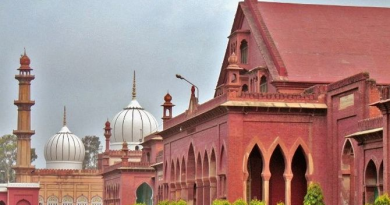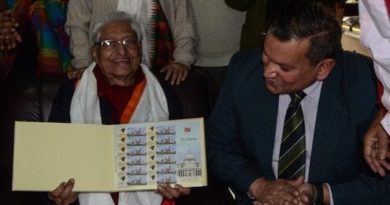Hong Kong police fire tear gas at protesters decrying China’s security law: Beijing’s plan likely to worsen relations between China & US
SUKUMAR Roy
POLICE have fired tear gas and pepper spray on the protesters taking part in the first pro-democracy demonstration since China announced plans to impose a new security law on the territory, home to about 75 lakh people. Hundreds of protesters gathered in the busy Causeway Bay and Wan Chai districts of the city on Sunday chanting slogans against the government and waving banners. “People may be criminalised only for words they say or publish opposing the government,” 25-year-old Vincent told AFP new agency, referring to the draft law. Demonstrators were marching through the city centre. Earlier, 200 senior politicians from around the world issued a joint statement criticising China’s plan. Signatories called it a “comprehensive assault on the city’s autonomy, rule of law and fundamental freedom, reports BBC.Europen Union and the United States of America are among several countries who have strongly protested China’s calculated move to bring Hong Kong under its control through some dubious local people. Signatories to the joint petition have called it a “comprehensive assault on the city’s autonomy, rule of law and fundamental freedoms”. China is seeking to pass a law that would ban “treason, secession, sedition and subversion” in the territory. China’s new law: Why is Hong Kong so worried? All the context you need on Hong Kong’s protests. How bad are China’s economic woes? It has dismissed fears the legislation would harm foreign investors in Hong Kong, an important financial centre, and has lashed out at “meddling” countries. Hong Kong’s leader Carrie Lam, who is tagged by democracy fighters pro-Beijing political establishment, has pledged full support to r the proposed law and said the city’s freedoms would remain unchanged. The US is currently considering whether to extend Hong Kong’s preferential trading and investment privileges. President Trump has gone on record saying the US would react strongly if the law went through – without giving details. The joint statement was drafted by former Hong Kong Governor Christopher Patten and former British Foreign Secretary Malcolm Rifkind, and signed by 186 policy makers and politicians from 23 countries. It describes Beijing’s plans as a “flagrant breach” of the Sino-British Joint Declaration under which Hong Kong was returned to Chinese rule in 1997.”If the international community cannot trust Beijing to keep its word when it comes to Hong Kong, people will be reluctant to take its word on other matters,” the signatories wrote.(edited by Chakravarty with inputs from Reuters)
in what could provide a litmus test of public opposition to China’s tightening grip over the financial hub. Beijing on Thursday proposed tough security legislation for Hong Kong, a move that sent a chill through financial markets and drew a swift rebuke from foreign governments, international human rights groups and some business lobbies. n drafting the new laws, which could see the setting up of Chinese government intelligence agencies in the global financial centre, Beijing plans to circumvent Hong Kong’s law making body, the Legislative Council. The move has sparked concerns over the fate of the “one country, two systems” formula that has governed Hong Kong since its return to Chinese rule in 1997 and which guarantees the city broad freedoms not seen on the mainland. Some local commentators have described the proposal as “a nuclear option” that is part of Chinese President Xi Jinping’s high-stakes power play.A backlash intensified on Saturday as nearly 200 political figures from around the world said in a statement the proposed laws said the proposed laws are a “comprehensive assault on the city’s autonomy, rule of law and fundamental freedoms”.




